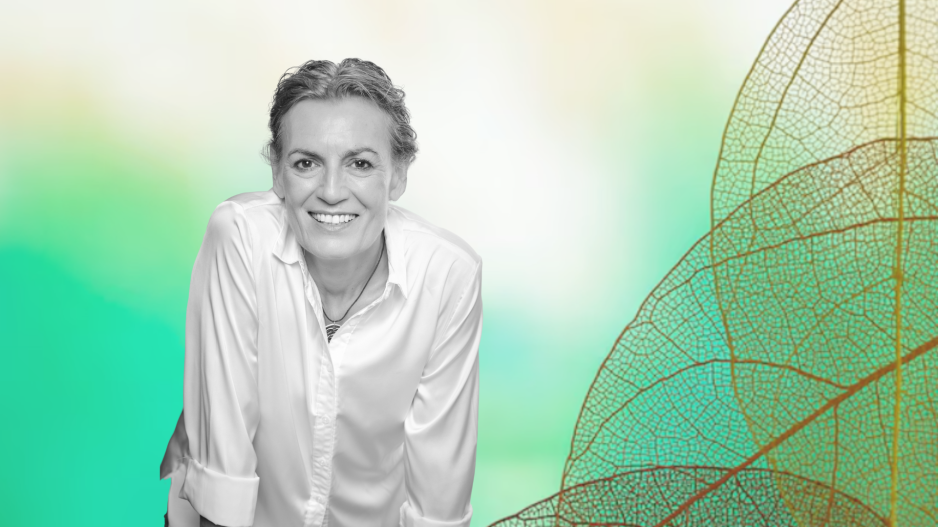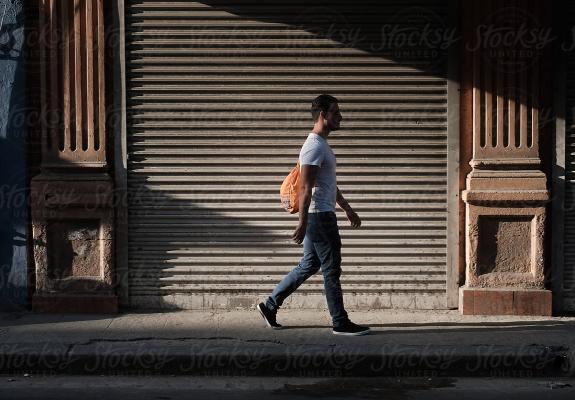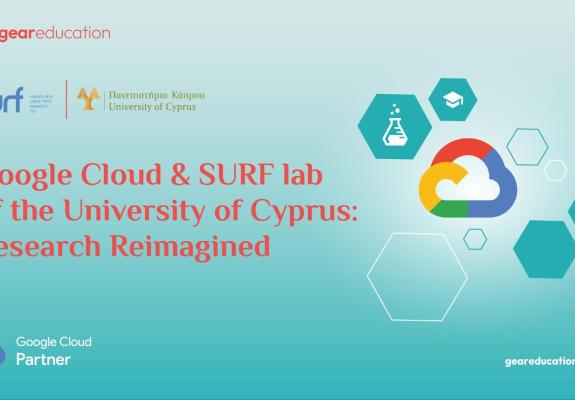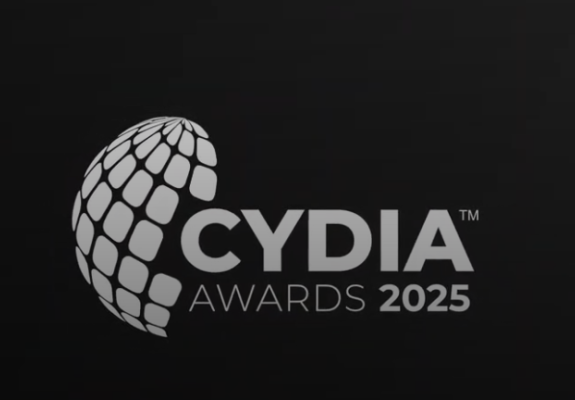Xenia Loizidou: “I Take Pride in My Work, and I Want My Two Daughters to Be Proud of Me”
AKTI Founder and ISOTECH Co-Director Speaks to FastForward About the Urgency of Sustainable Action, Overcoming Systemic Barriers, and Her Vision for Environmental Management
Conversations with people who, from very early on, recognized the imminent dangers and challenges, and who, through their actions, consistently find themselves on the right side of history—specifically in the fight for the protection of the island's coasts and environment—are always engaging.
The good thing about these individuals is that they need little introduction. Their actions speak for themselves.
Since 2000, Xenia Loizidou has been a key figure in environmental protection and sustainability. Through the NGO AKTI and Isotech, Environmental Research and Consultancy, she has led diverse initiatives aimed at safeguarding the island's environmental and ecological heritage, ensuring that it is preserved in the best possible condition for future generations.
Her many years of experience and unwavering principles also give Ms. Loizidou the confidence to speak her mind. In this era of extreme climate crisis, with Cyprus at the forefront of losses due to its geographic location and climate, the island's decision-makers are moving too slowly—or at least, they still seem unable to distinguish between the short-term benefits gained from the unchecked exploitation of mountains, coasts, and ecosystems, and the long-term gains that come from doing the exact opposite.

It was 2000, summer. We were having our coffee with my brother Michael under our tree at the patio of our house at Kathikas, our village in Pafos. The discussion was on this new wave of social change that was rising during that time in Europe, the NGOs, the civil society organisations. Professional organisations, with employees, working on research. Not charity, not for profit. Civil Society Organisations that could employ scientists and be active in innovative fields. This was something new for Cyprus and we decided to do it! To create the first Cypriot environmental NGO. We reached out to 7 friends, all scientists in the field of environment, and here we had the first Board of Directors!
The godmother, the one who came up with the name AKTI, is our mother, who is a professor of Greek literature. AKTI, in Greek means “coast”. AKTI is 24 years old, active in more than 40 countries and has received several international awards for being innovative and impactful. A well known activity of AKTI in Cyprus is Tiganokinisi, the domestic used cooking oil activity, our flag ship. Also the initiative #potavristou. And several more. As the Chairperson of the Board of Directors, I am a volunteer at AKTI. And I am so proud to see the organisation excelling, with a very active team of young experts, powerful, dynamic and always active and creative.
In the 90s, I was a government employee working as an executive engineer in the Coastal Unit of the Public Works Department. My brother Michael, a chemical engineer, worked for some time at the Development Bank and then at a consulting firm. We decided to establish our own consulting firm because we wanted the freedom to pursue our dream. As engineers, our dream was to implement solutions that would lead to sustainability—what we now call the green shift. We aimed for a hands-on approach and wanted to see tangible results. We envisioned working in different countries, across various environments—industry, society, land, sea, and deserts. Sustainability isn’t just a theory; it’s about implementing real solutions, and we were eager to take action!
We quit our jobs and registered ISOTECH. We worked hard—very hard. In the early years, we even slept at the office
We quit our jobs and registered ISOTECH. We worked hard—very hard. In the early years, we even slept at the office. Our first significant milestone came in 2004 when we decided to participate in international tenders. Since then, we have primarily worked abroad as a “boutique” research and consultancy firm, tackling complex sustainability challenges such as waste management, transforming industries into circular economies, locating marine macro-litter hotspots, and implementing Construction Environmental Management Plans for a desert highway. Over the last 25 years, we have worked in more than 50 countries, studying and implementing a diverse array of hard engineering sustainability solutions with ISOTECH’s amazing team of highly skilled engineers. It is exhausting but incredibly exciting, creative, and rewarding.
Of course, Cypriot society is much more aware and sensitive now than it was 10 years ago. Cypriots are willing to adopt environmentally friendly habits and are positive about endorsing sustainability practices.
The incompetence of decision-makers and the corruption that runs rampant in our country are two critical reasons that hold Cyprus back
The reason our country is not implementing a sustainable development model relates to decision-making. Unfortunately, sustainability is not high on the political agenda, and the climate crisis is not taken seriously. There are numerous declarations from politicians and decision-makers on climate change and sustainability, yet we do not see real political will to implement an effective sustainable development model. Citizens feel discouraged; they often come to us complaining, for example, that plastic straws have been demonized and blamed for all the planet's problems. At the same time, we see high buildings and towers rising within the coastal protection zone, or an eight-story hotel receiving permits from competent authorities to be constructed in the protected area of Akamas, while municipalities cut down mature urban green and replace it with cement.
The incompetence of decision-makers and the corruption that runs rampant in our country are two critical reasons that hold Cyprus back and make Cypriot citizens doubtful about the possibility or even the necessity of a sustainable shift.
I love my work. I have a passion for it, and I am in love with the sea. I am curious and enjoy applied research, designing, and implementing solutions. I travel all over the world. I implement solutions and I monitor the results, I can see and measure the results of my efforts—small steps toward a better world! I take pride in my work, and I want my two daughters to be proud of me. All of this serves as a huge motivation to keep going and never give up.
As an engineer, I am grounded in reality. Of course I could share my vision for the future of coastal and environmental management in Cyprus—where our island shifts toward nature based solutions for our coasts, our cities would built resilience to climate crisis, and an abundance of trees, all balanced within an economic model that respects the three axes of sustainability: economy, society, and environment. A great vision. But the truth is I am not particularly optimistic about our current trajectory.
Effective environmental management in Cyprus is lacking. Our coasts are a precious and endangered natural resource, especially for an island like ours. Most have been developed unsustainably, driven by the short-term profits of a few. Our development plans fail to account for the realities of climate chaos. Agriculture is suffering, and desertification is advancing rapidly.
When we finally recognize that climate chaos is threatening our existence, I fear it will be too late to react
While this is a global issue, several countries, particularly in Central Europe, are implementing effective environmental management plans. Europe is a champion of sustainability, as seen in the Green Deal. It is disheartening that Cyprus does not follow suit, as adopting a sustainable development model is vital for our survival. When we finally recognize that climate chaos is threatening our existence, I fear it will be too late to react.







